MAGIC! 7
Elevpaket – Digitalt + Tryckt
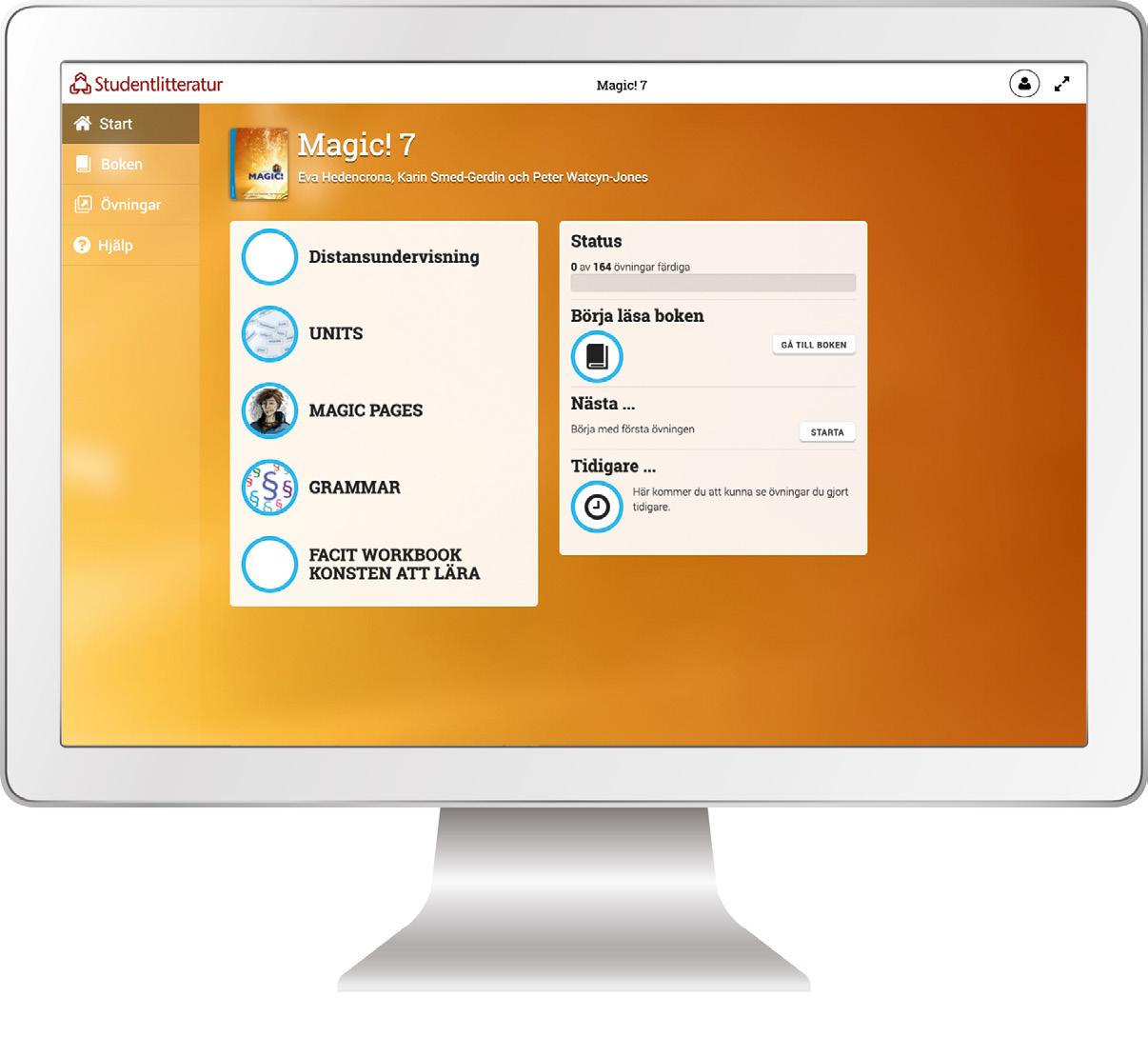
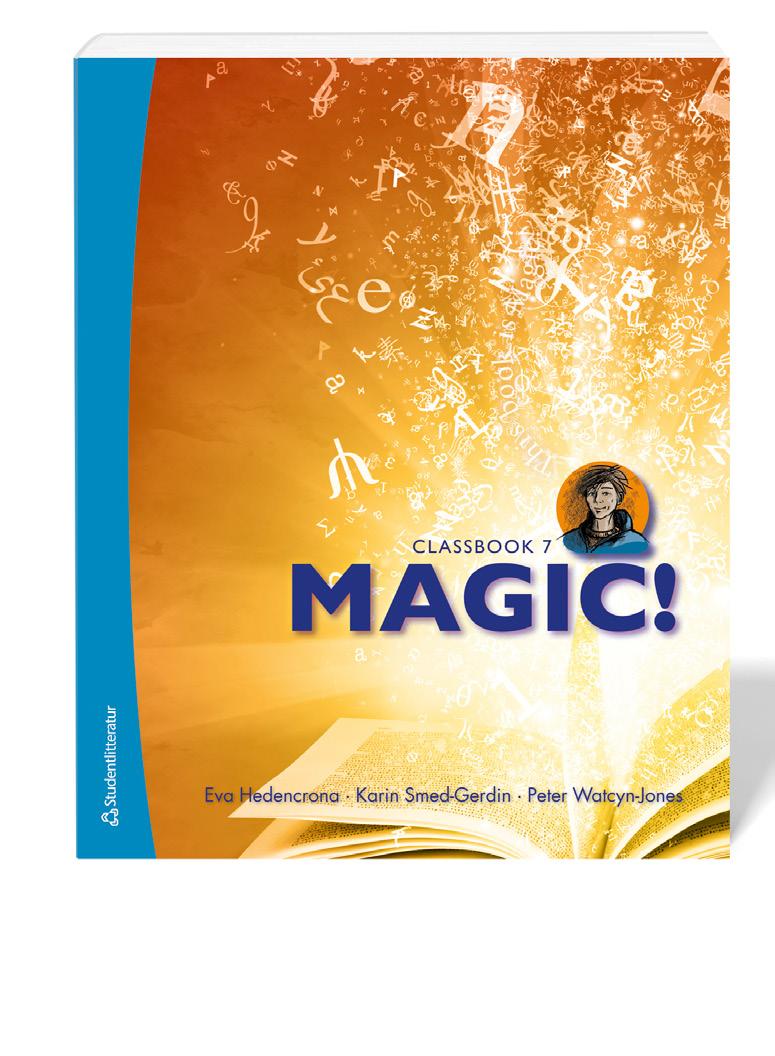



Magic! hjälper eleverna att nå målen i engelska och ger dig de rätta verktygen för att motivera och individualisera. Det digitala läromedlet, som ingår i varje elevpaket, är ett fantastiskt redskap både för de elever som vill och kan gå fram i snabbare takt och för de elever som behöver extra stöd och träning. I elevpaketet ingår Classbook, tryckt bok med digitalt läromedel, Workbook och Word Trainer.
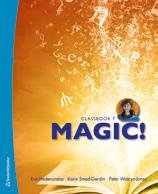
Classbook är tematiskt indelad med en stor variation av texttyper, såväl sakprosa som skönlitteratur, indelade i tre nivåer. Ingången till temat är utdrag ur en Easy Reader. Utdragen lockar till fördjupad läsning och flera av romanerna är även filmatiserade och kan användas i undervisningen.
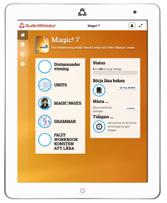
Det digitala läromedlet ger många olika träningsmöjligheter och de digitala övningarna ger stöd och mängdträning såväl som utmaningar.
Interaktiv version av boken, inläst med autentiskt tal och textföljning
Här finns Classbooks alla texter som eleven kan läsa och lyssna till samt alla hörövningar.
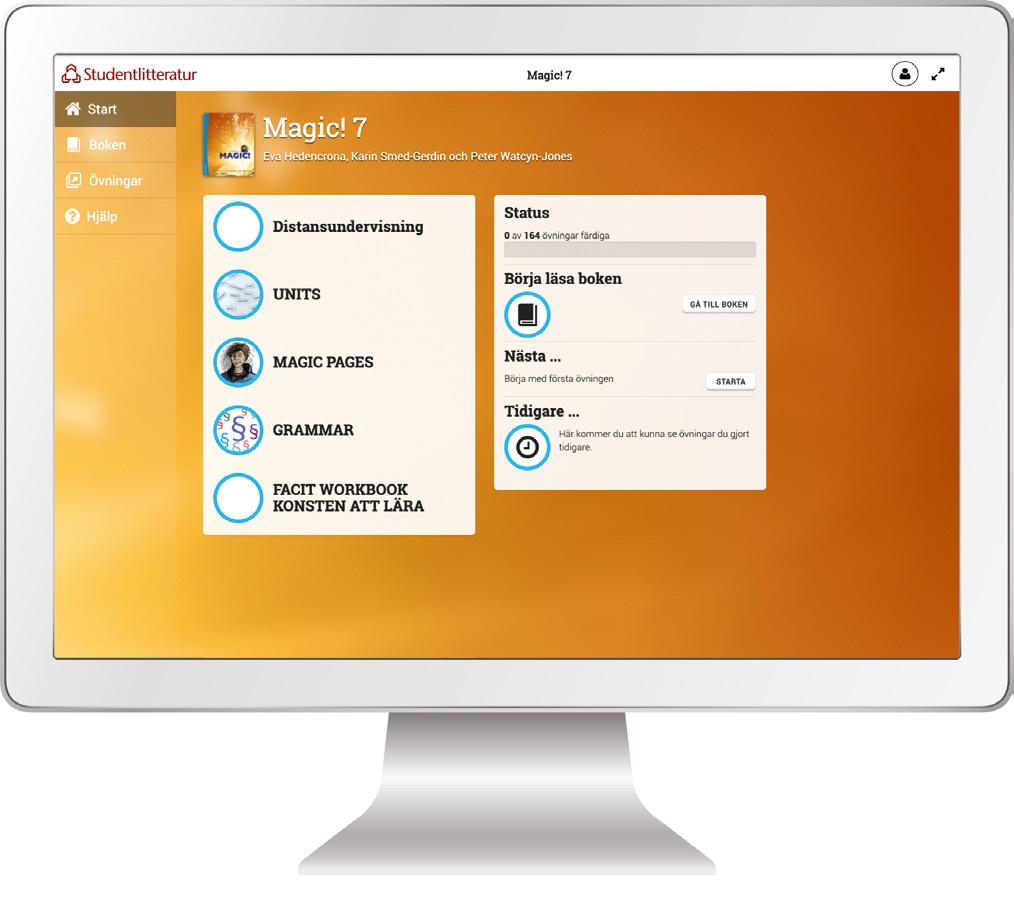
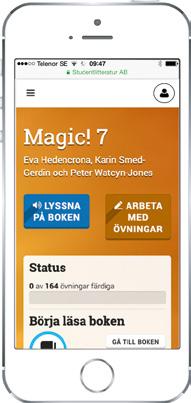
Fungerar på dator, surfplatta och mobiltelefon
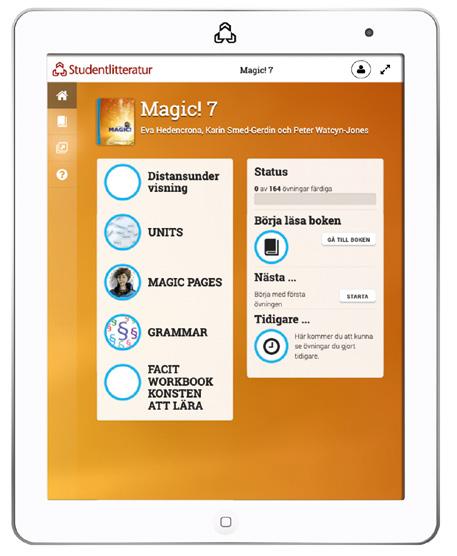
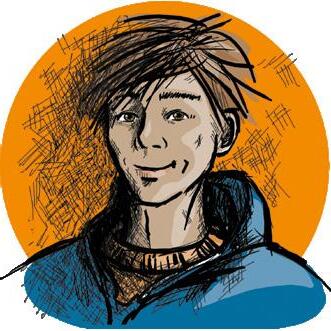

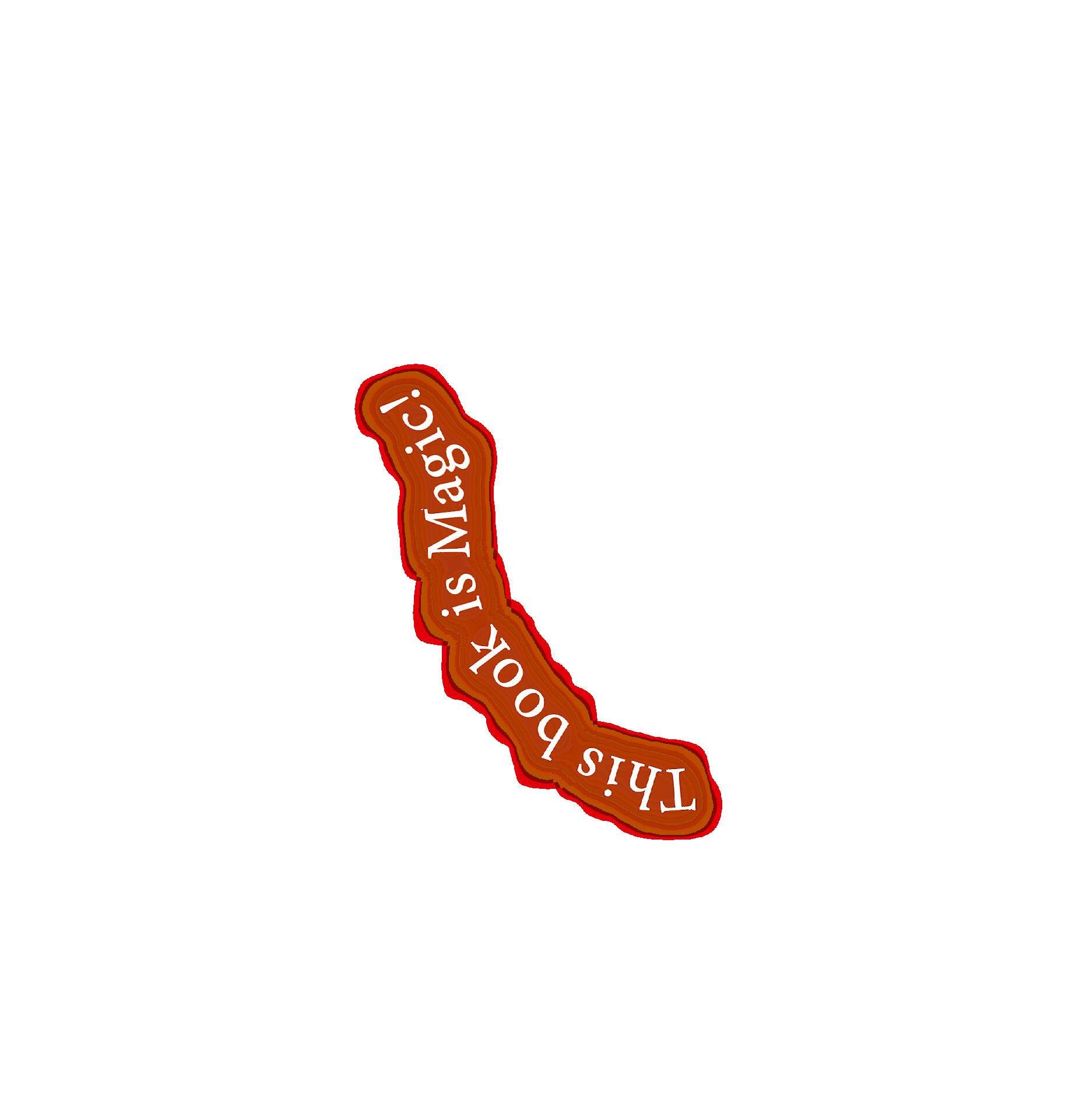
Studentlitteratur AB
Box 141
221 00 LUND
Besöksadress: Åkergränden 1 Telefon 046-31 20 00 studentlitteratur.se
Produktionsstöd har erhållits från Specialpedagogiska skolmyndigheten.
Illustrationer
Ingrid Fröhlich utom:
19 Rob Chapman
40 Sally Barton
45 Chris Rothero
Fotografier
17 David Levenson/Rex Features/IBL
26 Eyevine/IBL (Zuckerberg)
26 Roger Violett/IBL (Marie Curie)
28 Getty Images Omslag och övriga: Shutterstock
Dags för Magic! 7. Du får läsa om många spännande personer och lära dig en hel del om olika engelsktalande länder.
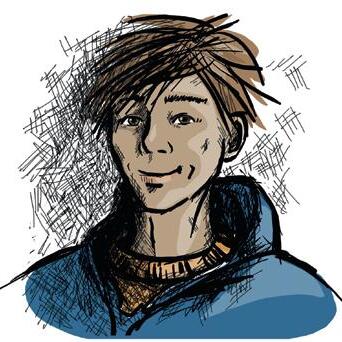
I Magic! ingår ett digitalt läromedel – din inloggningskod finns på omslagets insida. I det digitala läromedlet kan du läsa och lyssna på hela boken och göra dina egna anteckningar om du vill. Du kan även lyssna på hörövningarna och arbeta med grammatik, ordövningar, korsord m.m. och du kan testa dig själv då och då. Jag finns där och hjälper dig när det behövs.
Genom att arbeta med Classbook, Workbook, Word Trainer och det digitala läromedlet kommer du att bli ännu duktigare i engelska.
Lycka till!
Max Magic
Kopieringsförbud
Detta verk är skyddat av upphovsrättslagen. Kopiering, utöver lärares begränsade rätt att kopiera för undervisningsändamål enligt Bonus Copyright Access skolkopieringsavtal, är förbjuden. För information om avtalet hänvisas till utbildningsanordnarens huvudman eller Bonus Copyright Access.
Vid utgivning av detta verk som e-bok, är e-boken kopieringsskyddad.
Den som bryter mot lagen om upphovsrätt kan åtalas av allmän åklagare och dömas till böter eller fängelse i upp till två år samt bli skyldig att erlägga ersättning till upphovsman eller rättsinnehavare.
Studentlitteratur har både digital och traditionell bokutgivning. Studentlitteraturs trycksaker är miljöanpassade, både när det gäller papper och tryckprocess.
Art.nr 32037 (avser Elevpaket, inkl Magic! 7 Classbook med digitalt läromedel, Magic! 7 Workbook samt Magic! 7 Word Trainer)
ISBN 978-91-44-16725-1
Upplaga 2:11
© Författarna och Studentlitteratur AB 2012
Printed by Pozkal/BESTingraphics, Poland 2023
Classbook
Efter introduktionen Get started! har Classbook 21 kapitel plus sex något svårare kapitel kallade Want Some More? – ungefär ett kapitel i veckan. I några kapitel finns avsnitt ur engelska ungdomsböcker. Längst bak hittar du Magic Pages, med kartor och grammatik. På omslagets insida finns en inloggningskod till det digitala läromedlet
Workbook
Här har du övningar till alla kapitel. Det finns olika typer av nyttiga och roliga hörövningar samt tal- och skrivuppgifter.
Word Trainer
Här tränar du de viktigaste orden i Magic! 7, med hjälp av vikordlistor och korsord. Här ska du även se målen för varje unit, planera och föra logg över ditt arbete.
Det digitala läromedlet
Använd en dator, surfplatta eller mobiltelefon och följ instruktionerna som finns på omslagets insida. När du loggat in kan du läsa och lyssna på alla texterna i boken, öva att känna igen och skriva de nya orden, lösa ordflätor, träna grammatik och mycket mer. Jobba både med böckerna och det digitala läromedlet så lär du dig bäst!
Easy Readers är korta ungdomsböcker på enkel engelska. Det finns avsnitt ur sex sådana i Classbook. När du har läst och lyssnat på avsnitten i Classbook, varför inte läsa hela boken?
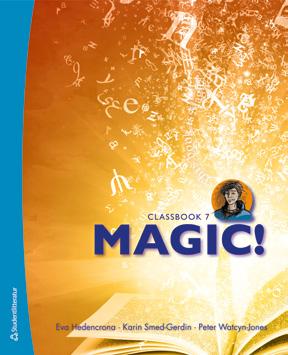
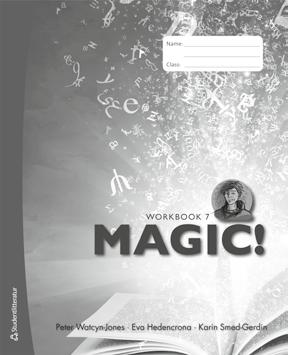
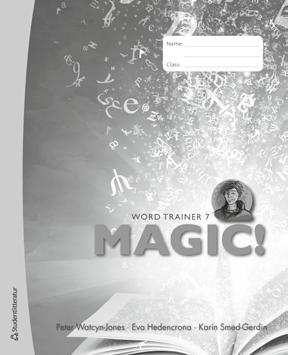
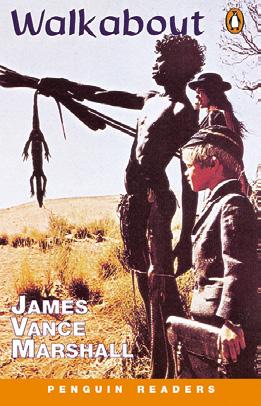
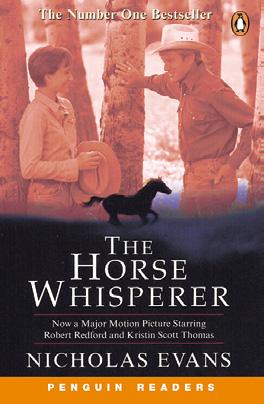
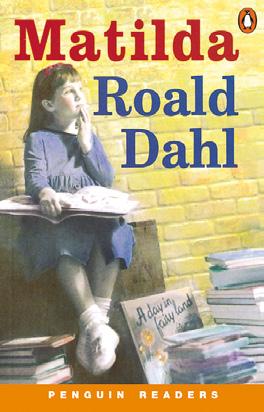
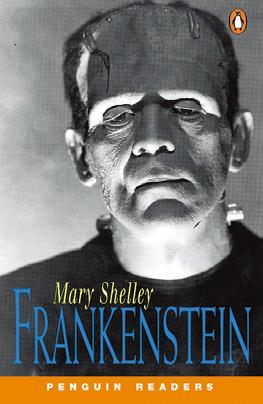
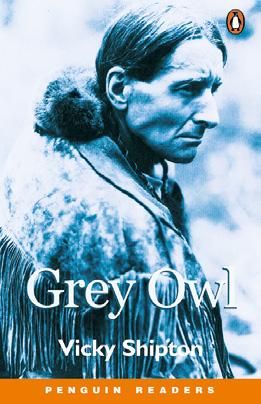
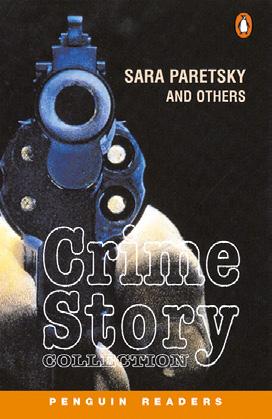
Unit
• GET STARTED 7
1 DOWN UNDER 11
• Homework Help 8
• Ten Magic Memory Tips 10
studieteknik, lärstrategier, studieord
1 Getting to Know You 12 Walkabout 12 att träffas, två barn i öknen am, is, are
2 Walkabout Listening 14 ett kulturmöte
3 Australia 15 Kylie’s Blog Listening 16 Straight Talk 17 Australien, geografiska ord Kylies vardag kulturskillnader have got/haven’t got
Want Some More? (WSM): TheToothbrush 19 far-son-relation
2 SMARTIES 21 4 Mum, Can I Go Out? 22 Matilda 22 en dikt en duktig tjej
Have, has, don’t have, doesn’t have
5 Matilda Listening 24 Matilda som hämnas was, were, wasn’t, weren’t
6 Famous ‘Smarties’ 25 kända smarta personer read, reads
7 A Young Entrepreneur 27 Quest to Learn Listening 27 en ung entreprenör ord för kläder a/an
WSM: Anthrax 28 Parts of a Boat 30 en typ av bakterie båtar, båtord
3 CANADA 32 8 A Question of Sport 33 Grey Owl 33 sport, sportord en ovanlig indian hoped, loved
9 Grey Owl Listening 35 bävrar i Kanada, ord för djurliv drove, saw etc …
10 Canada 36 Kate in Canada Listening 36 Kanada, Toronto
11 World Cup Fever 38 att fixa en tv has lived, have been
WSM: Making Friends 40 The Greatest Hockey Player Ever! 42 vänskap Wayne Gretzky
4 PROS AND CONS 44
12 What Are You Scared Of? 44 Frankenstein 45 rädslor fakta om boken had played, had made
13 Frankenstein Listening 47 ett monsters födelse one man, two men
14 Are You Addicted to the Internet? 48 Gopal’s Spare Time Listening 50
15 I Gave Away Half of Everything I Own 51 I’d Like to Squeeze 52
olika syn på internet, dataord Peter’s bike
5 WHAT’S NEXT? 55
6 CRIME SCENES 65
välgörenhet jämlikhet am? was? were? do? does? did?
WSM: Too Good For Me 52 tjej gillar kille
16 Cats and Dogs 56 The Horse Whisperer 56 katt- eller hundälskare en ridolycka I’m going to
17 The Horse Whisperer Listening 59 ett drama med hästar what, where, why?
18 Killer in the Bushes 60 This Is Justin Listening 61 ett hämnduppdrag en intervju big – bigger famous – the most famous
WSM: Meet Oz 62 ett ovanligt husdjur
19 My Phone’s Been Stolen 66 Three is a Lucky Number 67 att anmäla en stöld mordplaner six o’clock in the morning
20 Three Is a Lucky Number Listening 71 ett listigt brott ord om brott there is/there are
21 London Crime 72 The Seven Cream Jugs Listening 74 brottshistoria who/which
WSM: After Twenty Years 75 ett ovanligt möte
MAGIC PAGES 79
ALPHABETICAL WORDLIST 116
Homework Help
Ten Magic Memory Tips



DEREK: I study at my desk alone in my room but sometimes I call people up and we quiz each other back and forth.
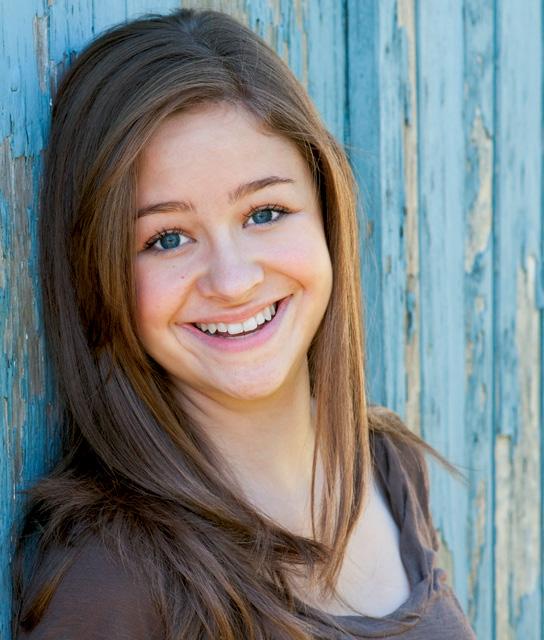

JASMINE: Sometimes when I have a major test my stomach gets all jumpy with nerves but that usually goes away. Mostly I get quizzed by friends like Derek and that really helps me, but I can’t spend too much time with people because then we start talking and not working.

To dear@help.com
Subject Help me to remember my homework
Dear HELP,
I’m not very organized. Sometimes I don’t do my homework, and I’m in deep water with the alligators (teachers)! Please help me find a way to be more organized and help me to remember to do my homework! DISORGANIZED

To dear@disorganized.com
Subject Things you need
Dear DISORGANIZED,
Here’s a recipe for getting your work done using some very basic ingredients: 1 spiral notebook, 1 calendar, 1 mobile phone, a little self-reliance
quiz förhöra back and forth fram och tillbaka major stor jumpy orolig organized organiserad, stukturerad be in deep water ung. vara ute på tunn is; ha problem alligator alligator recipe recept ingredient ingrediens self-reliance självförtroende


Label a spiral notebook “HOMEWORK”. Or use your mobile phone to make notes. Take it to school every day. When you get an assignment, record it here. Draw an alligator on the cover to remind you what will happen if you forget!

Take a look at your desk or your work area. Do you see loose papers? Potato chip packets? Banana skins? Get rid of them. There should be nothing on it but a calendar, maybe your phone, a computer and your schoolbooks. Period.
Set a certain time for doing your homework, and do it at that time every day. If you find yourself cheating, set an alarm when you come in from school. When it goes off, you go to your desk and sit down. (It doesn’t hurt to ask Mum or Dad to encourage and remind you, too.)

So you’re at your desk. Before you do anything else, read through your assignments and write the deadlines in your calendar. Which ones are due tomorrow? Which ones are due after that? If you have a big project, break it into smaller pieces:
• Look things up on the Internet.
• Find information about the subject.
• Write a report.
• Do graphs.
• Write each step on a separate day in your calendar, too.


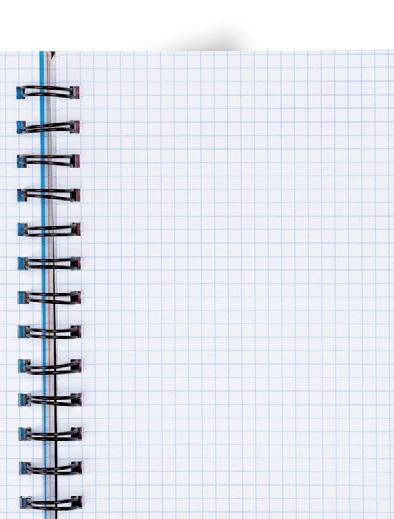
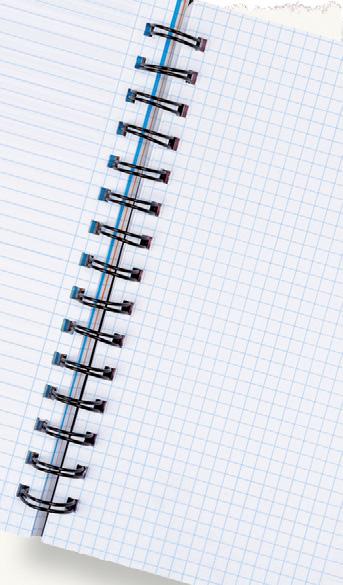
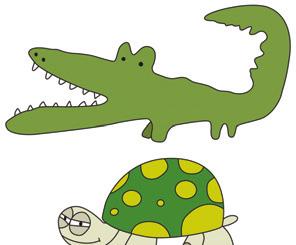

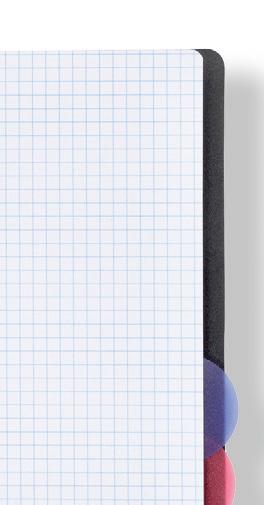
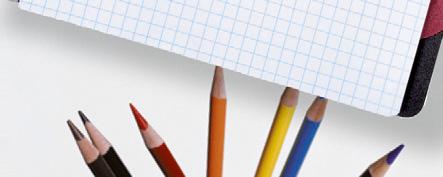





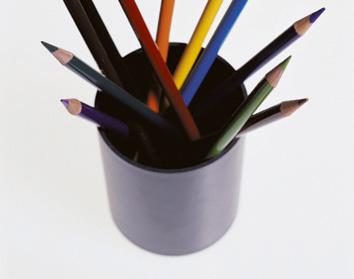


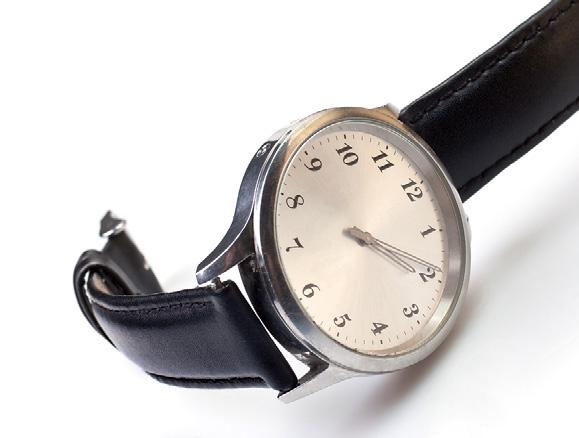


First, do the assignments that are due tomorrow. Then check your calendar and decide what you should do next. You’re the boss. Now follow your own orders.


label märka assignment uppgift, läxa record h. skriva in cover omslag work area arbetsplats
loose papers h. papper som ligger och skräpar banana skin bananskal period punkt slut cheat fuska go off h. ringa

encourage uppmuntra are due h. ska göras graph diagram separate enskild, egen
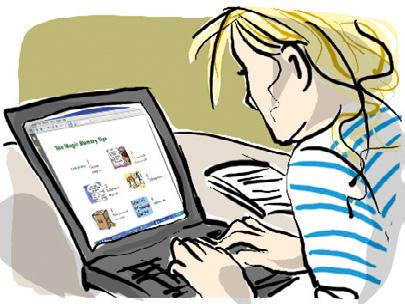
1
Use your computer.
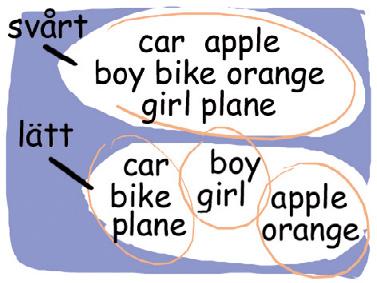
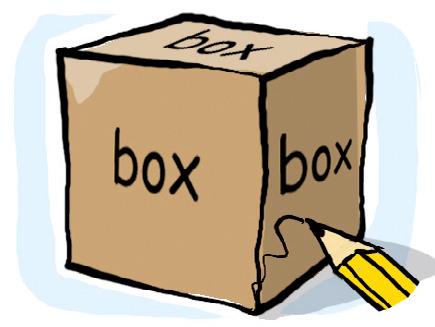
3 Collect words in groups.
5 Draw pictures of new words.
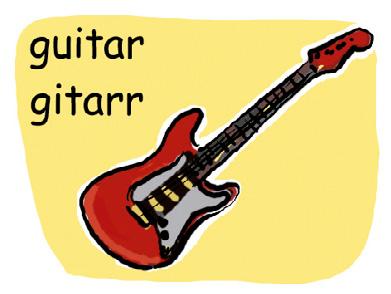
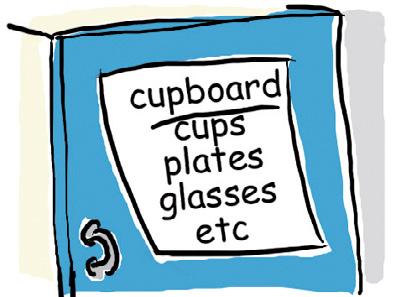
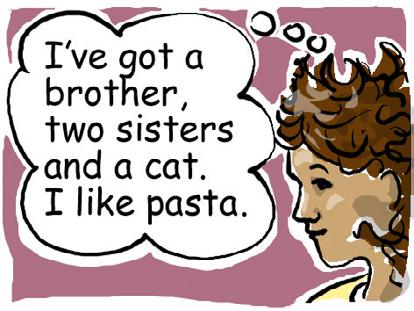
2 Use new words about yourself.
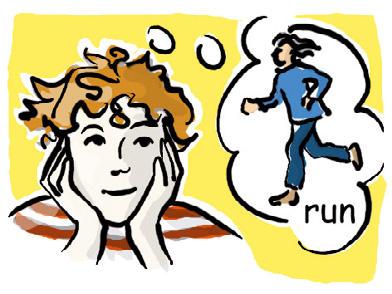
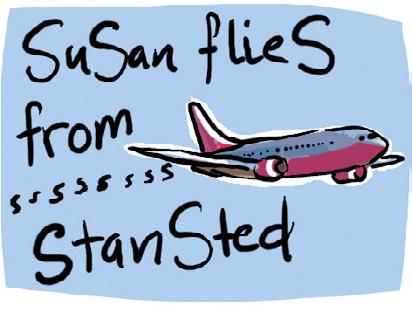
7 Find similar words in your language.
9 Stick notes with words you want to learn around the house.
4 Think in pictures.
6 Make fun rules.
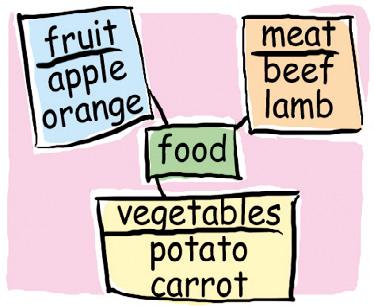
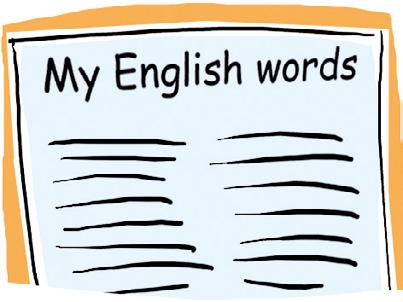

collect samla draw rita rule regel similar liknande wordmaps ordkartor
10
8 Make wordmaps.
Write down new words in your English notebook or on your computer. Klicka här för att öva på kapitelorden!
•••
chapter 1
Getting to Know You
Walkabout
chapter 2
Walkabout Listening
•••
chapter 3
Australia
Kylie’s Blog Listening
Straight Talk
•••
want some more?
The Toothbrush
De röda prickarna visar hur svår texten är. En prick = lättast, tre prickar = svårast. ... ... ...

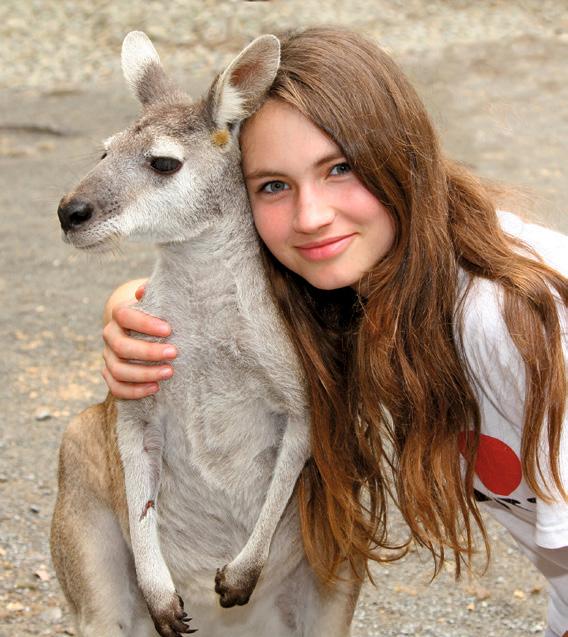
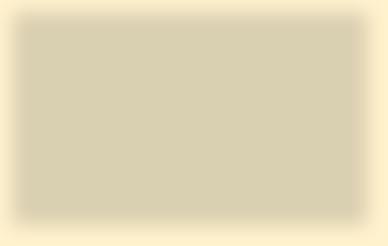
Read the dialogue and practise more in your Workbook.
A: Hello. My name’s James.
B: Hi, James. I’m Irma.
A: Where are you from, Irma?
B: Sweden. And you?
A: I’m from Wales.
B: How old are you?
A: I’m thirteen. And you?
B: I’m fourteen.
A: Where do you live in Sweden?
B: In Göteborg.
A: I live in a town called Swansea.
B: What do you want to be when you leave school, James?
A: I’m not sure. Maybe a pilot. What about you?
B: I want to be a politician.
A: Well, I have to go now. See you later.
B: Yes, see you.
leave school sluta skolan politician politiker
In Australia, when an Aboriginal man-child is sixteen, his tribe sends him out into the Australian bush. A lot of the bush is desert. The bush boy has to live there alone for months. The Aboriginals call this time the ‘walkabout’.
This is the story of an Aboriginal boy’s walkabout, but it is also the story of two American children. Mary and Peter are lost in the Australian desert after an aeroplane crash. Their uncle is waiting for them in Adelaide, a long way away. The desert is a strange world for the children. They come from a city, and things are different there. When they meet the bush boy, they learn about the desert. They also start to think about their world. But can the story end happily for the three children?
The aeroplane crashed in the middle of nowhere. There were no roads, no houses and no people. There was only bushes and rocks as far as the eye could see. Only two children survived the crash.
The aeroplane was on fire. The girl pulled her small brother away from it.
‘Run, Pete,’ she shouted. ‘Quick!’
They ran through the bush as fast as they could. Then they started to climb up through some rocks. Near the top, they stopped and looked down. From the rocks, they watched the fire.
‘Where are we?’ asked Peter.
walkabout vandring
Aboriginal urinvånare tribe stam bush vildmark desert öken lost vilse aeroplane flygplan crash h. olycka, haveri
uncle morbror, farbror in the middle of nowhere bortom civilisationen rock klippa survive överleva be on fire brinna pull dra climb up klättra upp through genom
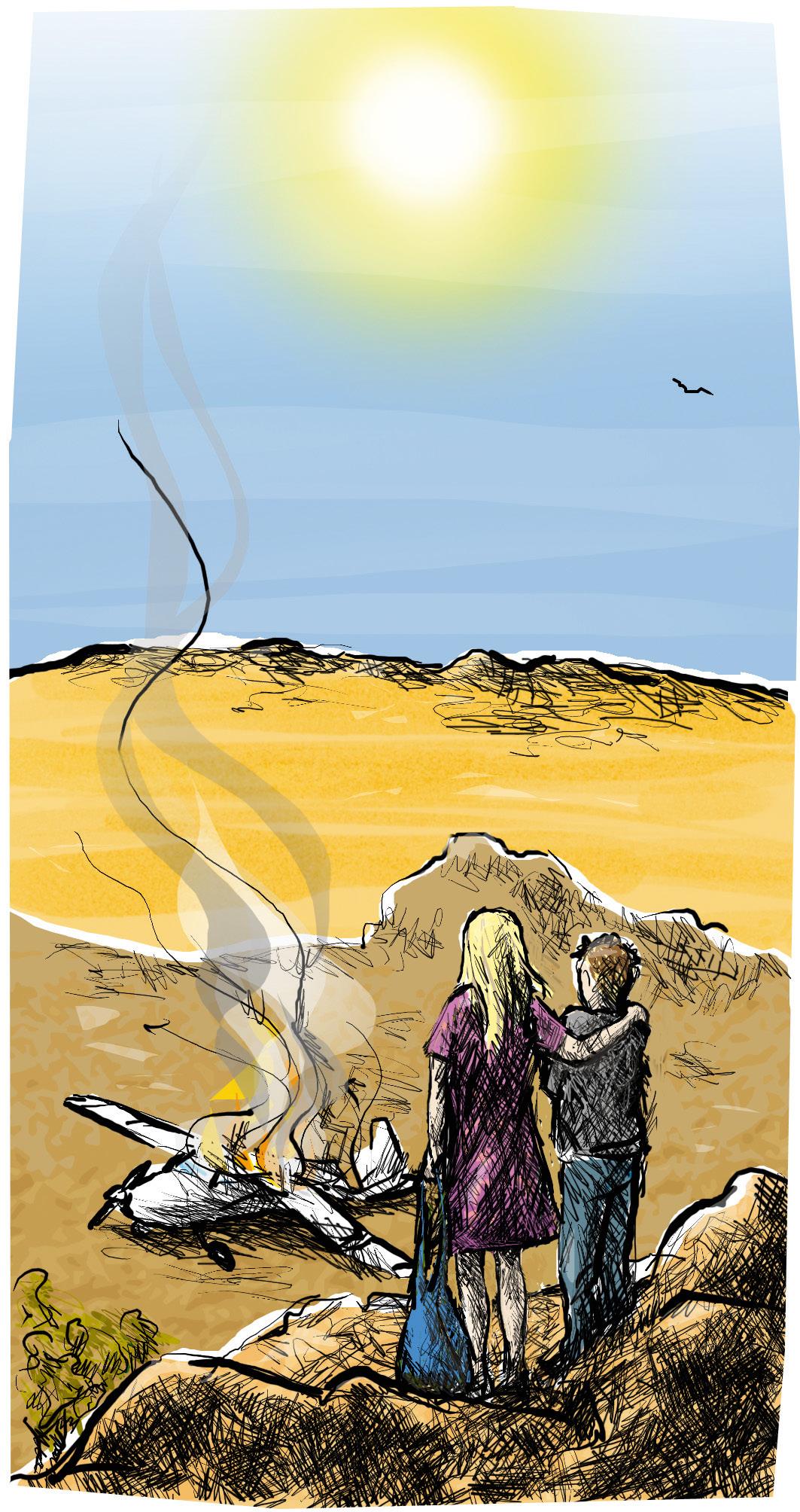
airport flygplats wife hustru, fru visit besök accident olycka survivor överlevande quietly lågmält, tyst broke in two (break) bröt itu hurt göra ont

The girl didn’t answer. She didn’t know. They were lost in the Australian desert. But she couldn’t tell Peter that.
Twenty-five hundred kilometres away, in the big city of Adelaide, Uncle Keith was at the airport. He looked at his watch. Keith’s brother worked in America. He lived in Charleston, South Carolina, with his wife and two children. This was the children’s first visit to Australia. But their aeroplane was late. It was very late. Uncle Keith waited and waited. He talked to other families. They asked about the plane, but nobody at the airport could tell them anything. Then people began to talk about an accident, about a plane crash. There were no survivors.
Now it was dark, and the children were alone. They were cold, so they climbed down between some rocks. They could see nothing, they could hear nothing. They were lost, and they were afraid.
‘It’s all right, Peter,’ said Mary.
His sister’s arms were round him. That felt better. When a boy is only eight, a big sister of thirteen can be wonderful.
They talked quietly, perhaps because there was no other noise. Or perhaps because they were afraid.
‘Mary,’ Peter said. ‘I’m hungry. Have you got any chocolate?’
Mary found the chocolate. She broke it in two, and gave half to him. They sat very quietly in the black night. Then Peter started to move again.
‘My leg hurts,’ he said. Mary looked at it.
‘It’s all right,’ she said. ‘It’ll be better in the morning.’
Click here to listen!
Listen and do the exercises in your Workbook. Use these pictures to follow and retell the story.
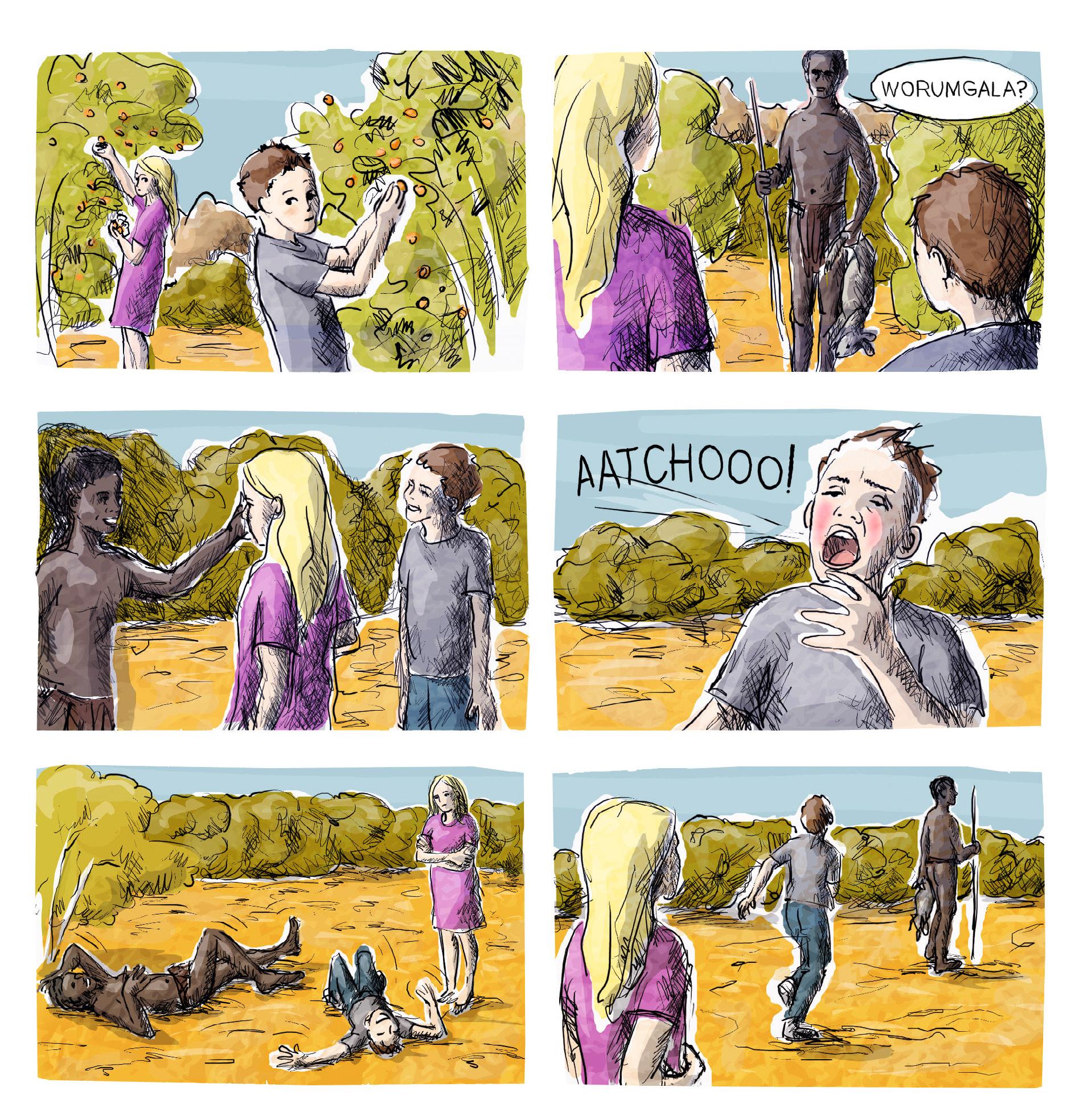
watch titta på, iaktta fell open (fall)
öppnade sig; h. gapade naked naken friendly vänlig perhaps kanske
dangerous farlig wallaby typ av känguru
spoke (speak) talade wait vänta bush boy vildmarkspojke
smile le felt his face (feel) kände på hans ansikte clothes kläder carefully försiktigt sneeze nysa
loudly högt be in charge ung. ha kontroll laugh skratta fell to the ground (fall) ramlade på marken let’s find him låt oss hitta honom
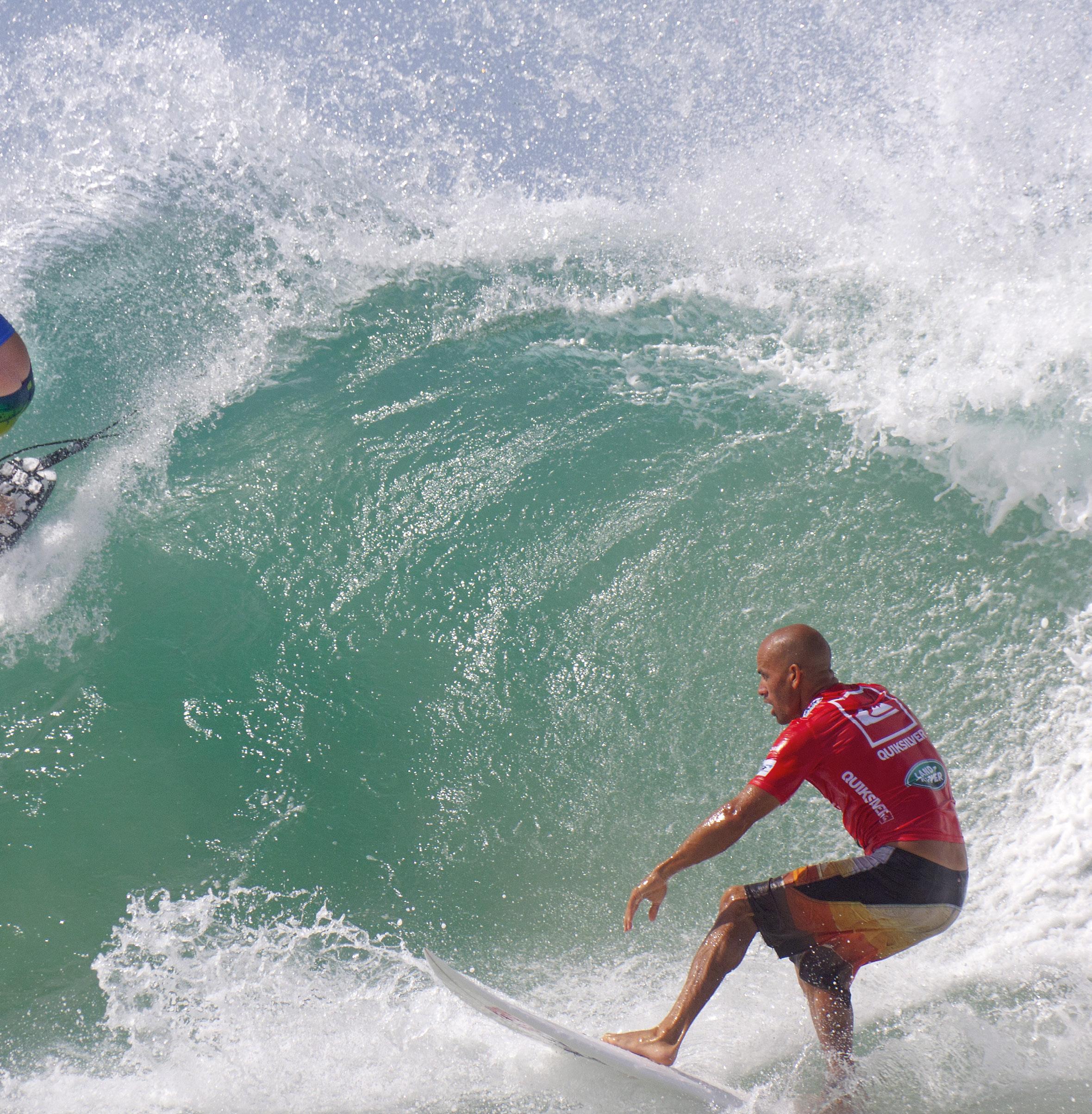
This is the story of two American children lost in the Australian bush after a plane crash, and of their meeting with an Aboriginal boy. Can they learn to communicate with the boy? Can he help to save them?
Size
7,741,220 square kilometres – the world’s biggest island and the sixth largest country in the world. Western Australia is eleven times bigger than Great Britain.
PoPulation
22 million. 89% of the people live in the six big cities: Sydney, Melbourne, Brisbane, Perth, Adelaide and Canberra.
HiStory
The Aborigines are the original Australians. In 1770, the British sailor James Cook “discovered” Australia and it became part of the British Empire. In 1787, Britain sent eleven ships with 770 convicts to Australia. They became the first “white Australians”.
CitieS
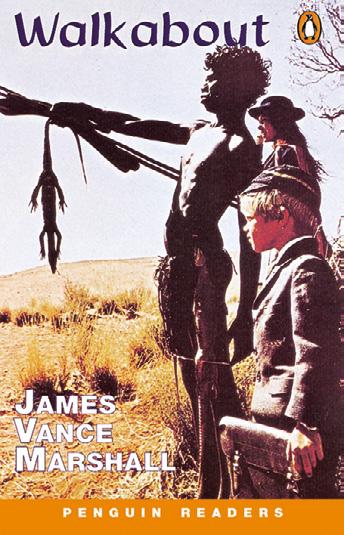

The biggest city is Sydney (4.5 million people) with its famous Opera House built in 1973. Melbourne is the second largest city. Canberra (an Aboriginal word meaning ‘meeting place’) is the capital of Australia. Other important towns are Adelaide in the south, Brisbane in the north-east, Perth in the west and Darwin in the north. And of course Alice Springs in the middle of nowhere!
square kilometres
kvadratkilometer
island ö country land
Western Australia delstat i Australien population befolkning Aborigine (Aboriginal) urinvånare original första sailor sjöman discover upptäcka the British Empire det brittiska imperiet sent skickade convict straffånge famous berömd important viktig
AnimAls
There are sixty different types of kangaroos. The biggest is the red kangaroo. It can jump more than four metres and run at seventy kilometres per hour. Like the mother kangaroo koala bears have a pouch in their stomachs where they carry their young. Koalas live in eucalyptus trees, eat one kilo of leaves and sleep 18 hours a day. The eucalyptus makes them sleepy. Koala means ‘no water’ and koalas drink almost nothing. Wild camels walk in the desert. There are also crocodiles, up to five or six metres long. They eat fish, kangaroos and other animals and sometimes people!
The OuTbAck
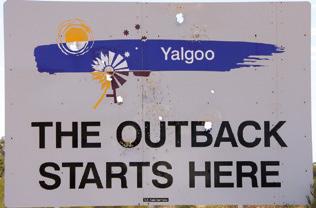
The outback is the enormous, flat, hot centre of Australia –more than 2/3 of the country. Only 100,000 people live in the outback and your nearest neighbour can be 100 kilometres away. People travel by car or by plane. Many children use the school of the air instead of an ordinary school. Teachers and pupils communicate via mail, Skype and sometimes radio.
Things TO see
pouch påse, pung stomach mage carry bära their young sin unge eucalyptus eukalyptus leaves löv almost nästan desert öken outback vildmark near nära neighbour granne the school of the air skola på distans rock klippa reef rev
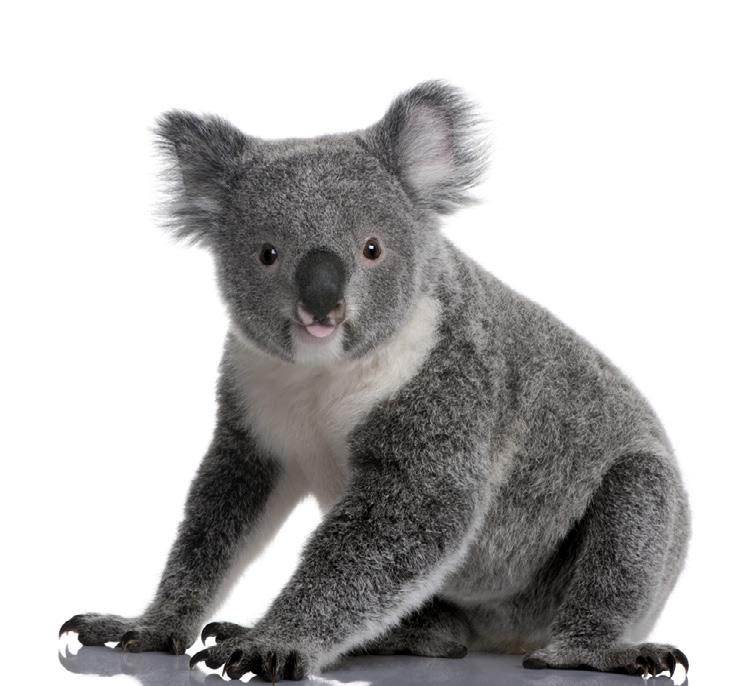
Uluru (Ayers Rock) is an enormous rock, 600 million years old, out in the desert. It is three kilometres long and 348 metres high. It is a great tourist attraction. The Great Barrier Reef is 2,000 kilometres long and is the world’s longest reef.
Listen to Kylie’s Blog and do the exercises in your Workbook.
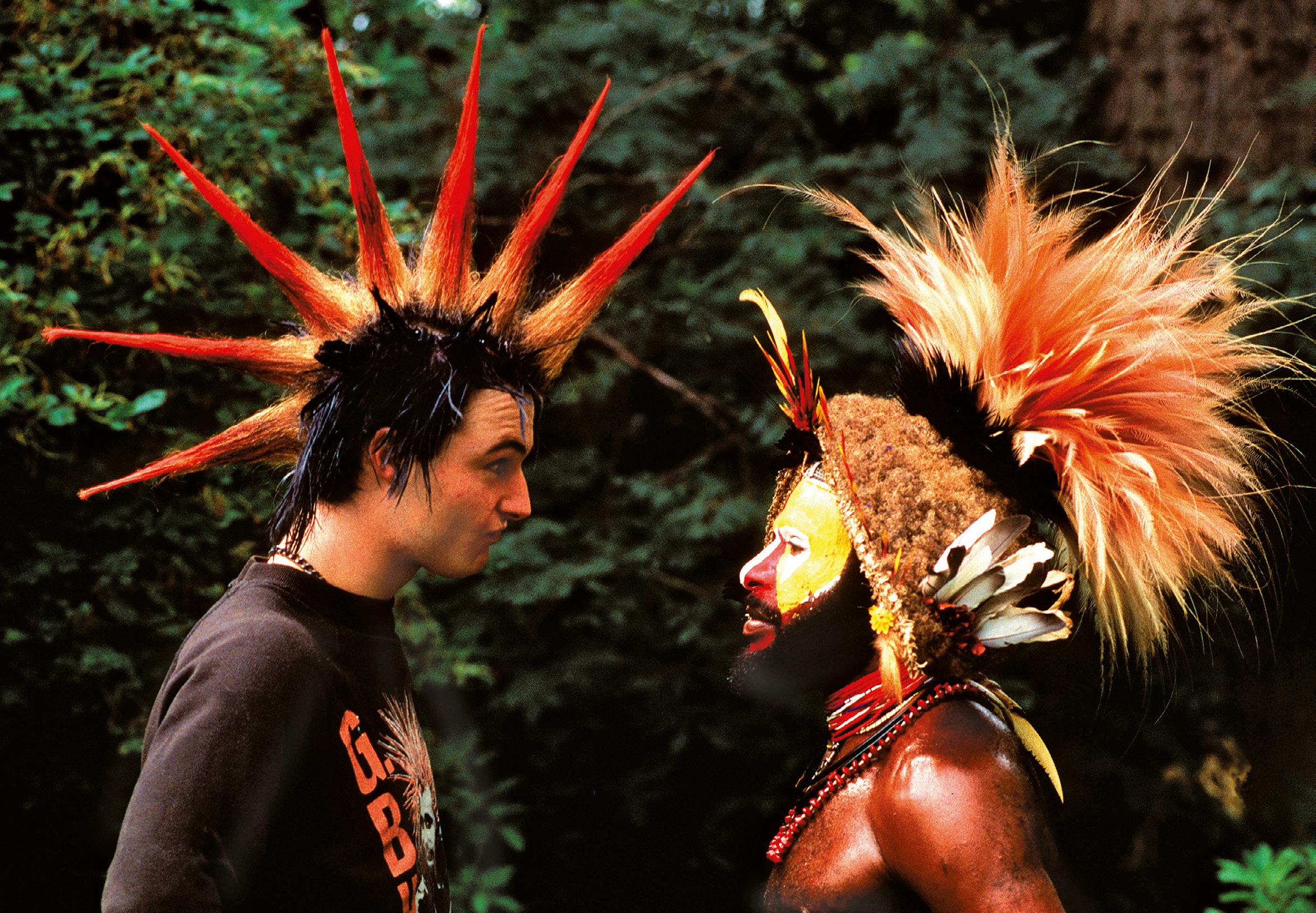
Would you hate someone just because they looked different to you? Unfortunately, after the terrorist attacks of September 11 2001, many people did. Muslim and Arab-American kids were bullied in the playground. Some were even afraid to go to school. And all because they looked similar to the small number of men who took part in the attacks. This is what three children said about accepting differences and trying to make the world a better place to live in:
Don’t be ignorant!
“Some people think that everyone should be like them, and that anyone who’s different is bad. That’s really stupid! It’s only because people like that don’t know or want to know anything about other cultures.” Lili, 10
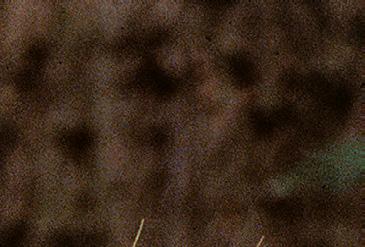
straight uppriktigt different annorlunda unfortunately tyvärr, dessvärre bully mobba playground skolgård similar lik, liknande took part (take) deltog, var med accept godta ignorant okunnig, ovetande bad dålig stupid dum culture kultur

“People are sometimes scared of others who are different from them. But once they get to know them, they usually find out that they’re not that scary – just different! You should always find out for yourself what a person is like –not judge them by what others say.” Nicholas, 10
Try to put yourself in other people’s shoes
“I went to a birthday party the other day. It was a friend from the Philippines. When I arrived, they had this giant roasted pig on the table! At first I thought it was really weird, but my friend said, ‘Well, that’s what we eat.’ And perhaps she thought that what I ate was weird too. If people could just understand that we’re basically the same inside, then maybe our differences wouldn’t seem so big.” Ashley, 11
• Accepting differences is like eating a pizza. Without the cheese, the ham, the tomatoes you just get a boring dough.
• Everyone is different. But everyone also has things in common. Do you wear a baseball cap, a Jewish yarmulke, a Sikh turban or a Muslim hijab? They might be from different cultures, but basically they are all hats.
• Has all your class been punished just because one kid couldn’t keep his or her mouth shut? That’s not fair! It’s not fair either to blame an entire group of people for the actions of a few individuals.
make up your mind bestäm dig scared of rädd för scary skrämmande judge döma put yourself in other people’s shoes ung. föreställ dig hur andra har det the Philippines Filippinerna giant jättestor roasted helstekt pig gris weird underlig basically i grund och botten boring tråkig dough deg in common gemensamt Jewish judisk yarmulke kalott hijab muslimsk huvudbonad fair rättvist blame skylla på entire hel
My Dad is not a bad sort of bloke. There are plenty who are much worse. But he does rave on a bit, like if you get muddy when you are catching frogs, or rip your pants when you are building a tree hut. Stuff like that. Mostly we understand each other and I can handle him. What he doesn’t know doesn’t hurt him. If he knew that I kept Snot, my pet rabbit, under the bed, he wouldn’t like it; so I don’t tell him. That way he is happy, I am happy and Snot is happy.
There are only problems when he finds out what has been going on. Like the time that I wanted to see Mad Max II. The old man said it was a bad movie – too much blood and guts.
“It’s too violent,” he said.


“But, Dad, that’s not fair. All the other kids are going. I’ll be the only one in the school who hasn’t seen it.” I went on and on like this. I kept nagging. In the end he gave in – he wasn’t a bad old boy. He usually let me have what I wanted after a while. It was easy to get around him.
The trouble started the next morning. He was cleaning his teeth in the bathroom, making noises, humming and gurgling – you know the sort of thing. Suddenly he stopped. Everything went quiet. Then he came into the kitchen. There was toothpaste all around his mouth; he looked like a mad tiger. He was frothing at the mouth.
“What’s this?” he said. He was waving his toothbrush about. “What’s this on my toothbrush?” Little grey hairs were sticking out of it. “How did these hairs get on my toothbrush? Did you have my toothbrush, David?”
toothbrush tandborste a sort of en slags bloke sl. snubbe, kille plenty massor worse sämre, värre rave on ryta muddy lerig catch fånga frog groda rip riva sönder pants brallor, byxor tree hut koja i ett träd stuff saker handle handskas med rabbit kanin blood and guts h. våldsscener violent våldsam fair rättvis nag tjata gave in (give) gav upp get around lyckas övertala hum nynna gurgle gurgla quiet tyst toothpaste tandkräm froth at the mouth h. ”tugga fradga” wave about vifta omkring

He was starting to get mad. I didn’t know whether to own up or not. Parents always tell you that they won’t do anything if you are honest –no punishment.
I decided to give it a try. “Yes,” I said. “I used it yesterday.”
He still had toothpaste on his mouth. He couldn’t talk properly. “What are these little grey hairs?” he asked.
“I used it to brush my pet mouse,” I answered.
“Your what?” he screamed.
“My mouse.”
He started jumping up and down and screaming. He ran around in circles holding his throat, then he ran into the bathroom and started washing his mouth out. There was a lot of splashing and gurgling. He was acting like a madman.
I didn’t know what all the fuss was about. All that yelling just over a few mouse hairs.
After a while he came back into the kitchen. He kept opening and shutting his mouth as if he could taste something bad. He had a mean look in his eye – real mean.
“What are you thinking of?” he yelled at the top of his voice. “Are you crazy or something? Are you trying to kill me? Don’t you know mice carry germs? They are filthy things. I’ll probably die of some terrible disease.”
He went on and on like this for ages. Then he said, “And don’t you think that you are going to see Mad Max II. You can sit at home and think how stupid it is to brush a mouse with someone else’s toothbrush.”
Want to read some more? Three Australian writers worth reading are:
whether om, huruvida own up erkänna honest ärlig punishment bestraffning give it a try göra ett försök properly ordentligt scream skrika throat hals splash plaska act uppträda madman galning fuss bråk, ståhej yell gasta mean elak look blick germ bakterie filthy smutsig disease sjukdom for ages i evigheter
MORRIS GLEIZMANN, whose family emigrated to Australia when he was 16, started writing a script for TV which was made into a film and then into a book called The Other Facts of Life. Gleizmann says this about the book: ” I discovered you can get closer to a character's thoughts and feelings in a book than in a film. /……../ That's when I fell in love with writing books. Since then I've written another 27. ”
SONYA HARTNETT started writing very young and published her first book when she was only 15 years old.The Ghost’s Child and Butterfly are two books by her. She received the Astrid Lindgren Memorial Award in 2008.
PAUL JENNINGS’s family also emigrated from GB to Australia. In 1985, Jennings' first book of short stories, Unreal!, was published. He has received many literary awards. The Toothbrush is written by him.
Hela klassen kan använda Magic! som erbjuder en tydlig röd tråd att följa, men också många möjligheter till individualisering genom det digitala läromedlet och texter på tre nivåer.
Magic! 7 består av fyra komponenter: Classbook, Workbook, Word Trainer och ett digitalt läromedel – allt praktiskt sampackat i ett elevpaket.
I det digitala läromedlet finns inspelade texter, hörövningar samt olika ord- och språkfärdighetsövningar. Magic! 7 fungerar både på dator och surfplatta.
Magic! är ett basläromedel i engelska som tar sitt avstamp i Lgr 22.
Magic! 7 Elevpaket – Tryckt bok + Digital elevlicens 36 mån
Omfattar Classbook med digitalt läromedel samt ett exemplar vardera av Magic! 7 Workbook och Magic! 7 Word Trainer.
Magic! 7 Workbook (10-pack)
Tio exemplar av Magic! 7 Workbook.
Magic! 7 Word Trainer (10-pack)
Tio exemplar av Magic! 7 Word Trainer.
Magic! 7 Lärarlicens med en digital version av lärarhandledningen, digitala resurser och elevens digitala läromedel.
Magic! 7 kan även beställas som digital elev- och klasslicens.
studentlitteratur.se